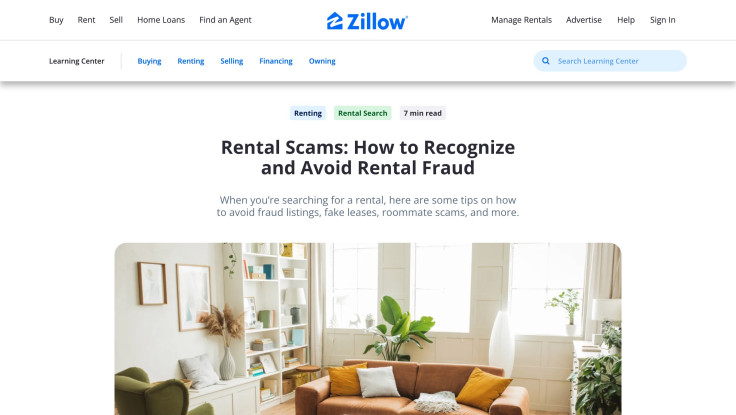Zillow Shows $1.6M Ranch Selling For $10K: Listing Says 'Owner Has Too Many Homes And Wants To Sell'
The 5,300-square-foot five-bedroom home was never intended to be listed for sale

Jamey and Lauren Bertram have been inundated with prospective buyers after their $1.6 million Kansas City home was fraudulently listed for just $10,200 on the real estate website Zillow. This shocking scam left the couple struggling to fend off eager viewers while they worked to rectify the situation.
The 5,300-square-foot, five-bedroom home, which the Bertrams purchased for around $1 million in 2019, was never intended to be listed for sale. However, a con artist managed to post a fake advertisement on Zillow, creating a chaotic situation for the unsuspecting homeowners. The listing suggested that the property was being sold at an absurdly low price as a charitable gesture, due to the owner's supposed wealth.
The Scam Unfolds
The fraudulent listing included several red flags designed to target first-time buyers while excluding brokers, lenders, investors, wholesalers, and attorneys. Interested parties were instructed to contact a fictitious person named "Mandi" and transfer $200 via an online banking app to the owner's mother as a prerequisite for viewing the home.
The scammer's narrative was elaborate: "Selling my home because my family and I own many houses across the US. Once a year, we sell one or a few of our homes to first-time buyers for under $25,000. This is done to bless a family or individual that needs it, but also as a tax write-off for us."
Homeowners' Nightmare
The Bertrams were oblivious to the scam until friends alerted them about the suspicious listing. "We've been trying to unwind this person that has taken over my house online for the last three days," Jamey told the Kansas City Star. "I'm kind of stuck here. People want to see the house. It's just a complete scam."
The couple faced continuous disruptions as potential buyers arrived at their doorstep, believing the too-good-to-be-true offer. The scam not only invaded their privacy but also created significant stress and confusion.
Zillow's Response and Broader Implications

Despite extensive guidelines on how to avoid scams, Zillow took nearly a week to remove the fraudulent listing. Jamey criticised Zillow for their lack of support, stating, "I've had zero help from Zillow. They've become unresponsive... It's a hot mess."
Zillow's guidelines advise users to be cautious of requests to wire funds and to verify the identity of landlords or sellers, especially if they claim to be overseas. Common scam indicators include unusually low prices, urgency to close the deal, and emotional appeals in the listing description.
According to the FBI's Internet Crime Complaint Center (IC3), there were 9,521 real estate-based fraud complaints in 2023, resulting in $145,243,348 in losses. These figures highlight the growing prevalence of such scams, surpassing losses from other cybercrimes like ransomware, extortion, and identity theft.
Preventative Measures
Zillow advises potential renters and buyers to:
- View properties in person.
- Ensure listings are accurate.
- Confirm the identity of agents.
- Use reputable and secure methods for money transactions.
Additionally, potential buyers should be wary of listings with significant typos, overly emotional stories, and deals that seem too good to be true. By taking these precautions, individuals can better protect themselves from falling victim to real estate scams.
The Bertrams' ordeal serves as a stark reminder of the pervasive nature of real estate fraud and the importance of vigilance when engaging in property transactions online. By adhering to recommended guidelines and staying alert to potential scams, buyers and sellers can navigate the real estate market more safely and securely.
© Copyright IBTimes 2025. All rights reserved.






















